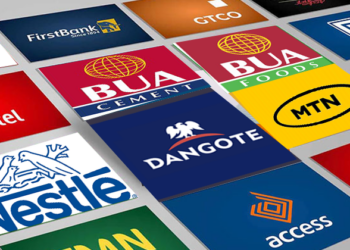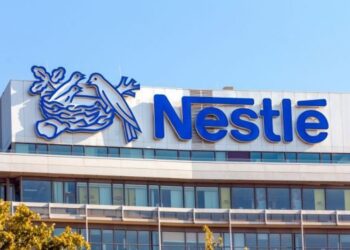The Nigerian Stock Exchange Consumer Goods Index (CGI), an index that tracks the performance of all consumer goods companies listed on the Nigerian Stock Exchange, depreciated by 3.22% in the week ended 5th February 2021.
The decline in the index was driven largely by the performance of big names like Nestle, Nigerian Breweries, Flour Mills, Dangote Sugar, and four other companies on NSE, whose shares decline during the week under review.
A preview of the performance of the Consumer goods Index revealed that as of the close of trading activities on Friday 5th February 2021, the index stood at 593.91 index points, from 613.69 index points at the close of trade on Friday 29th January 2021.
READ: Industrial index down by 2.07%, as shares of Lafarge, Dangote, others decline on NSE
What you should know
- The NSE Consumer goods Index was designed to provide an investable benchmark to capture the performance of companies in the consumer goods sector. The index comprises the most capitalized and liquid companies in food, beverage, and tobacco.
- The index is based on the market capitalization methodology, as it tracks the performance of fifteen consumer goods companies on the Nigerian Stock Exchange which includes, Nestle, Nigerian Breweries (NB), Dangote Sugar, and Flour Mills.
- The overall performance of the companies was bearish as the index closed on a negative note with 8 losers relative to 3 gainers. MCNICHOLS (+43.14%) led the gainer’s chart for the week, while Champion (-10.93%) was the top loser.
READ: Nigerian stocks end near stalemate, despite gains from Nestle, Airtel, Dangote
Top Gainers
- MCNICHOLS up 43.14% to close at N0.73
- UNILEVER up 8.15% to close N14.6
- INTBREW up 3.33% to close at N6.2.
READ: GTBank, Zenith Bank, WAPCO surge, investors gain N201 billion
Top Losers
- CHAMPION down by 10.93% to close at N2.77
- NNFM (N Nig. Flour Mills) down by 10.64% to close at N8.65
- VITAFOAM down by 10.45% to close at N9.00
- FLOURMILLS down by 9.37% to close at N31.45
- DANGSUGAR down by 5.88% to close at N20.




















